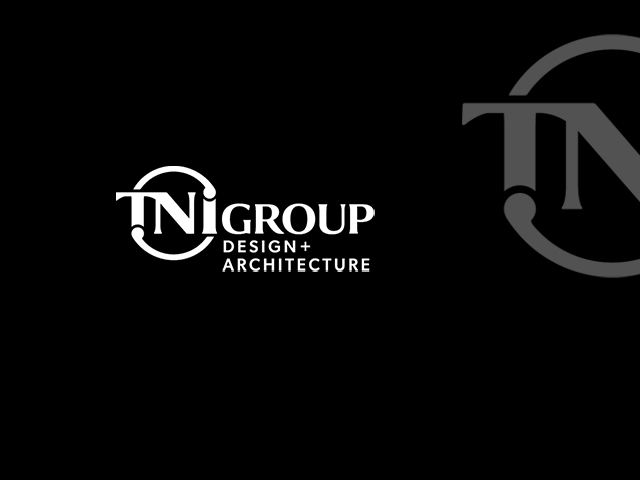
Navigating the Complexities of Permitting in Commercial Projects
A thriving restaurant, an expanding franchise, or an impressive commercial development all have one thing in common—they must undergo a rigorous permitting process before they can transform from plans to reality. For restaurant owners, franchise owners, building owners, commercial developers, architects, MEP engineers, and anyone who is looking to enter into commercial or residential construction projects, understanding the permitting landscape is crucial.
Embarking on commercial projects can be both an exhilarating and daunting venture, especially when it comes to navigating the maze of permitting requirements. With the right insights and guidance, however, understanding these complexities can become far less intimidating. This article, written by expert permit expeditor, Thelma Ancill of TNI Group, aims to demystify the permitting process in commercial projects, making it accessible and manageable for project managers and developers alike.
The Challenge of Permitting
Permitting is far more complex than simply filling out forms. It involves navigating a labyrinth of local, state, and federal regulations, each with its own set of requirements, timelines, and fees. Here’s why permitting is such a formidable challenge:
Understanding the Basics of Commercial Permitting
The journey of commercial development begins with a step that many project managers find daunting: permitting. The basics of commercial permitting involve understanding the myriad of local, state, and federal regulations that dictate what can be built, where it can be built, and how it should be built. The first step is identifying which permits are necessary for your project, a task that requires thorough research and, often, consultation with city planning departments or professional permit expediters. This foundational knowledge ensures that project managers start on solid footing, avoiding costly delays or legal issues down the line.
Permitting in commercial projects serves as a safeguard, ensuring that all construction complies with the latest codes for safety, health, and environmental protection. This phase may involve submitting detailed plans to city planners, engineers, and fire departments for review. Navigating this intricate process efficiently demands a strong understanding of the specific requirements of your project’s jurisdiction, which can vary widely even within the same state or region. Engaging with the permitting process early and with a ready arsenal of required documents can significantly streamline this step.
The Importance of Research and Local Regulations
Before the first blueprint is drawn, one must delve into the local regulations that will shape the project. This involves not just a cursory glance, but an in-depth analysis of zoning laws, building codes, and environmental regulations that vary greatly from one locale to another. In many cases, specific projects may fall under unique zoning categories that dictate allowable uses, height restrictions, and density. A project’s success is often tied to the ability of project managers to anticipate and navigate these local peculiarities, making research an indispensable part of the permitting process.
Getting to grips with the specific requirements of your project’s area can unearth opportunities as well as constraints. For instance, some regions offer incentives for sustainable building practices or heritage conservation, which can be leveraged to the project’s advantage. However, the flip side includes navigating the potential minefield of environmental regulations or historical preservation requirements that might impose additional layers of complexity and cost. Engaging with local authorities and the community early in the process can help uncover these nuances, fostering a smoother permitting journey.
Gathering the Necessary Documentation for Your Application
One of the most cumbersome aspects of the permitting process is compiling the necessary documentation for submission. This typically includes detailed architectural plans, engineering reports, environmental impact assessments, and sometimes even traffic studies. Each document must adhere to the specific guidelines and formats required by the reviewing authority, often necessitating the expertise of professionals specialized in various fields. This step underscores the importance of assembling a well-versed team early in the project’s lifecycle, ensuring that all documentation is comprehensive, accurate, and tailored to meet the exacting standards of the permit application process.
Avoiding Common Pitfalls in the Permitting Process
Thelma Ancill, of The Next Idea Group (TNI Group) explains the path to obtaining permits is often fraught with potential missteps that can delay progress or inflate project costs. One common pitfall is underestimating the time required for permit approvals, leading to unrealistic timelines for project completion. This underestimation can result in a domino effect of delays, impacting construction schedules and overall project timelines. Additionally, a lack of thoroughness in preparing applications can lead to rejections or requests for resubmission, further stalling the process. Project managers can navigate these challenges effectively by setting realistic expectations, thorough planning, and building in contingencies for unforeseen delays.
Another frequent challenge is failing to adequately engage with local communities and stakeholders. Projects, especially those of significant scale or impact, can face opposition from local residents or advocacy groups concerned about environmental, aesthetic, or social implications. Proactively communicating the benefits of the project, addressing concerns, and demonstrating a commitment to compliance and sustainability can mitigate such challenges. Transparent engagement from the outset not only smoothes the permitting path but can also contribute to a more positive perception of the project within the community.
Tips for a Smooth Permit Approval Process
To ensure a smooth permit approval process, begin by establishing a clear, open line of communication with the permitting authorities. Understanding their concerns and criteria for approval can provide invaluable insights that shape project planning and documentation. Moreover, leveraging the expertise of professionals who specialize in permit expediting can offer a significant advantage. These professionals navigate the complexities of the permitting process daily and can provide strategic guidance tailored to your specific project, potentially saving time and resources.
Leveraging Professional Help for Permitting Challenges
In the intricate dance of securing permits for commercial projects, leveraging professional help is not just advisable; it’s often a necessity. Permit expeditors and specialized consultants bring a wealth of experience and insider knowledge to the table, enabling them to anticipate hurdles, streamline submissions, and facilitate smoother interactions with regulatory bodies. Their expertise can be particularly invaluable in complex projects that intersect with nuanced regulations or in jurisdictions known for their labyrinthine permitting processes. Ultimately, enlisting professional support can expedite approvals and lay the groundwork for successful project execution.
Embracing the Permitting Process with Confidence
Navigating the complexities of permitting in commercial projects does not have to be an overwhelming challenge. With the right approach, a clear understanding of the requirements, and a bit of patience, success is within reach. Remember, the goal of permitting is to ensure safety, sustainability, and compliance. By embracing the process and utilizing the tips shared in this guide, you can move forward with confidence, knowing that you’re well prepared to tackle the permitting challenges of your next commercial project. For further assistance, explore our services.
Regulations and Requirements
Multifaceted Regulations:
- Local Zoning Laws: Before any construction can begin, the project must comply with local zoning laws, which dictate how land can be used in specific areas, maximum building heights and so on.
- Building Codes: Adequate safety measures, structural standards, and disabled accessibility features are all mandated by building codes.
- Environmental Regulations: Projects must also adhere to environmental regulations that protect natural resources and ensure sustainable practices.
Changing Requirements:
- Updates and Amendments: Regulatory requirements are not static; they frequently change, making it challenging to stay compliant.
- Jurisdictional Variations: What works in one city or state may not apply in another, requiring project managers to be well-versed in the specific regulations of each locale.
Timelines and Delays
Time-consuming Approvals:
- Review Processes: Permits often undergo multiple review stages, each adding to the timeline, thus always plan for longer than originally advised.
- Inspections: Scheduled inspections throughout the construction phase ensure compliance but can lead to delays.
Unforeseen Delays:
- Backlogs: Government offices may have backlogs, slowing down the review process.
- Resubmissions: Errors in the application can necessitate resubmissions, further delaying the project.
Costs and Fees
Financial Implications:
- Various Fees: Permit applications often come with a slew of fees, from initial application fees to inspection fees.
- Hidden Costs: Delays can lead to additional costs, such as extended project timelines and increased labor expenses.
TNI Group’s Permit Expediting Services
Given the complexities involved, having a knowledgeable partner can make all the difference. TNI Group offers permit expediting services designed to simplify the permitting process for all stakeholders involved in commercial projects.
What We Offer
- Expert Guidance: Our team of experts stays up-to-date with the latest regulations and requirements, ensuring your project remains compliant from start to finish.
- Efficient Processing: We streamline the application process, reducing the time it takes to obtain necessary permits.
- Cost Management: By minimizing delays and avoiding resubmissions, we help manage and reduce overall project costs.
Why Choose TNI Group?
- Experience: With years of experience in the industry, we have a proven track record of successfully navigating the permitting landscape.
- Comprehensive Services: From initial consultation to final approval, we offer end-to-end support.
- Client-focused: We prioritize your needs, providing personalized service to ensure your project’s success.
Conclusion
Permitting is a complex yet essential aspect of any commercial project. The myriad of regulations, potential for delays, and associated costs can make the process daunting. However, with the right support, you can overcome these challenges and bring your vision to life.
If you’re ready to simplify your permitting process, reach out to TNI Group today. Our permit expediting services will help you cut through the red tape and get your project off the ground.
Get in touch with us now to learn how we can assist with your permitting needs.
Call: (818) 343-5393
Text: (747) 249- 2320
Email: info@thenextideagroup.com
Don’t let permitting complexities hold your project back. Let TNI Group be your partner in navigating the world of permits.



